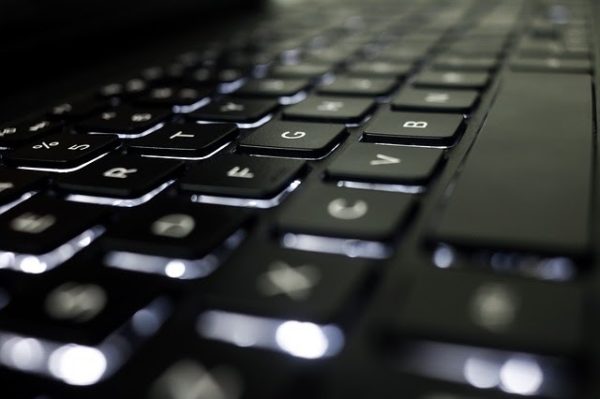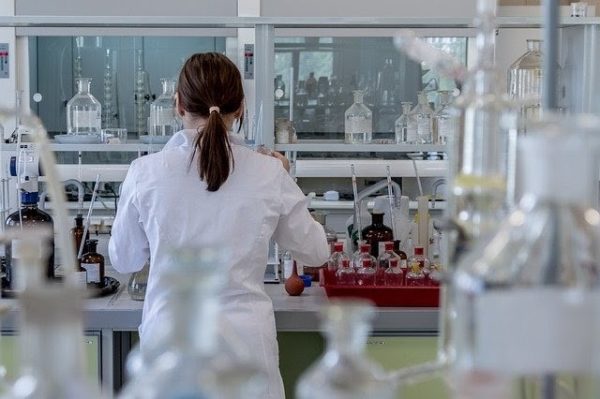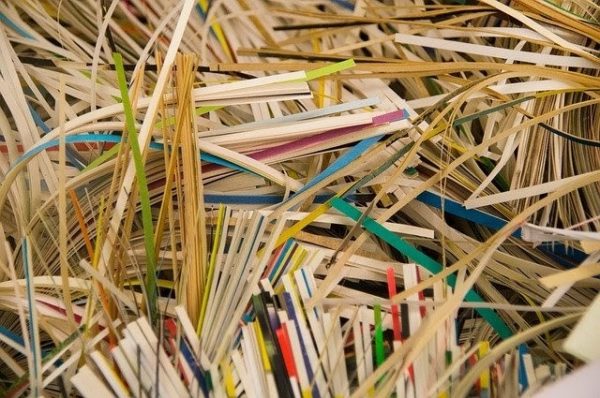
Image credit: https://pixabay.com/photos/busy-office-ol-answer-the-phone-880800/
Have you shown your back office equipment any love lately? If you’re like most of us, you probably don’t think a lot about what goes on behind closed doors, especially if those closed doors are to the closet to your printer and other office equipment. However, it just might be time to take inventory of what equipment you use, what may need to be replaced, and what simply needs some general preventative maintenance to keep on trucking.
Constant monitoring of back-office equipment can help to troubleshoot potential problems before they crop up. General maintenance also increases productivity so that staff is focusing on their job, rather than beating their heads over why something isn’t functioning. Routine maintenance also ensures a better return on investment; you wouldn’t drive your vehicle when the engine light shows low oil, and your office equipment is no different. It needs to be well-maintained, updated, and switched out when necessary to run a well-functioning company.
Good quality equipment lowers costs long-term
Buying expensive equipment doesn’t always seem like the an exciting way to spend cash, especially when it’s something that is often out-of-sight and out-of-mind. But, the total cost of ownership can be greatly reduced for an item -sometimes, of course- if you’re willing to shell out the big bucks earlier on.
As stated on investopedia.com, “The total cost of ownership (TCO) is the purchase price of an asset plus the costs of operation. Assessing the total cost of ownership represents taking a bigger picture look at what the product is and what its value is over time.”
Okay, okay, you probably already know that. But what does that break down into?
Let’s take a look at an example. If you have a photocopier that costs 5000 dollars initially, but takes 500 dollars worth of maintenance each year, halfway into year five, you’ve already caught up with a better photocopier that cost 7500 dollars upfront with no yearly maintenance fee. At that point, you’d be better off having spent that initial larger sum, and have less headache and stress than the photocopier you’re dealing with now. Of course, sometimes it’s impossible to know that specific office equipment is going to be a lemon, but with enough research, you can often find ones that stand out as worth their weight in gold.
When should you replace equipment?
Think about every equipment item that your business uses that generally requires some level of interaction or maintenance. If you’re re-purchasing a coffee maker every year, the company is much better off investing in a more expensive less-breakable one to begin with. The importance of buying good equipment reduces the overall total cost of ownership, and if you invest in that fancy coffee maker, you might even boost company morale a bit, as well.
Not all office equipment is made equally! If, though, you find that you use a paper shredder once every three years, purchasing an inexpensive one might end up suiting your business fine. Don’t overpay for things you won’t use often, but don’t scrimp on something that will have a large effect on your business’s bottom line.
If you’re wondering if or when you should replace office equipment, there should be two questions you ask:
- How important is the piece of equipment for your business? And
- What is the total cost of ownership of said item at this time?
If the equipment is vital to the business, and you’re seeing issues crop up, it may be time to invest in a newer option. If it plays a very minor role, you may be able to get away with not investing in a new piece of equipment, especially if the total cost of ownership is well below the investment of an alternative item. Consider how often you use the equipment and go over any finances related to its maintenance.
If the total cost of ownership is still relatively low, you may want to continue trying to maintain a piece of equipment as long as it is not something that is vital to your business. A computer, for instance, has a very different shelf life than a break room microwave.
Preventative Maintenance Matters
From paper shredders, to lab equipment, to printers and copiers, regular maintenace is necessary. There’s a lot to be said for being proactive instead of reactive, and that’s no more apparent than when discussing why preventative maintenance is of utmost importance.
Before diving into specific equipment, let’s take a look at some tips that help lengthen the life span of general office equipment.
- Maintain appropriate ventilation around equipment. Don’t allow equipment to overheat when functioning, as this can reduce its overall life span.
- Keep things clean. Many office equipment items have fans to keep them cool while in use, but these fans are notorious for sucking in more than just air: from dust to lint to pollen. Keeping the office area clean will reduce the amount of dust sucked into these machines.
- Keep food and drink away from back-office machines. There’s no need to have crumbs littering the area by the photocopier.
- Use surge protectors for larger equipment, and keep electrical cords covered and out of the way of foot traffic. If the item is not used often, consider unplugging it entirely and storing it out of the way to reduce the chance of it malfunctioning.
Now, let’s get down to business about some of the most important back-office equipment that needs to be maintained or replaced most often to keep your business running at an optimal level.
Maintain Company Computers

Image credit: https://pixabay.com/photos/keyboard-computer-technology-office-2308477/
Most modern businesses rely heavily on computers, whether it be for a point-of-sale, inventory tracking, software development, or a plethora of other uses. If a computer breaks down, it can be incredibly impactful to your company. Keeping the company’s computers in general good condition and having a regular maintenance routine for them is key in keeping your business running smoothly.
For computers, you’ll want to dust the computers themselves, particularly if they are not laptops, and update your operating system as necessary. Virus scans can be a great way to keep a computer in good running condition, but if you’re unsure of where to start, hire a professional to do any updates to your computers quarterly. The price is well worth it in maintaining a well-running business and is exponentially more affordable than shelling out the money for brand new machines.
Data loss can be an incredibly costly lesson, not to mention the cost of employee productivity when a computer they are working on suddenly has no drive space or stops functioning entirely.
Lab and Medical Equipment needs to be kept up to date
If you are in sciences or work in a lab, you’re no stranger to knowing how important it is to keep your work station spotless. The risk for cross-contamination is otherwise high, but the general upkeep of other lab equipment is also necessary to maintain accurate records and results. Lab equipment is undoubtedly one of the highest expenses for science-based businesses, and taking care of medical fridges, microscopes, thermometers, and other lab equipment is incredibly important.

Image credit: https://pixabay.com/photos/laboratory-analysis-chemistry-2815641/
For things like lab thermometers and medical fridges, knowing that they are in working conditions can mean the difference in correct results and incorrect ones. Pay attention to any alarms your medical fridges may make, keep the gaskets clean, maintain the coils, and establish a maintenance routine to keep your lab fridges working properly, and you’ll be well on your way to taking care of your lab samples.
Not sure where to even begin to make sure your lab is up-to-date with general maintenance? You can download a simple lab maintenance checklist here, with reminders of how and when to clean, calibrate, repair, and refurbish lab equipment that you are using.
Paper shredders
Paper shredders are designed to eat through all kinds of paper with some even designed to handle credit cards, CDs, DVDs, paper clips, and staples. Even with their purpose in mind, paper shredders are one of the most notorious machines in the workplace that seem to fail time and time again.

Image credit: https://pixabay.com/photos/recycling-flakes-paper-rest-2755131/
When the sole purpose of the piece of equipment is to break things down into smaller pieces, it’s inevitable that the paper shredder is the one thing to constantly fail over and over. Let’s be honest: Dave in accounting didn’t take that 20-page-limit seriously and tried to shred 21 papers at once, and lo-and-behold, the shredder is jammed again. Once Dave pulls out that paper jam, here are a few tips to move forward to keep that paper shredder well-maintained.
- Make sure the paper shredder is on a surge protector and keep all other wires out of the way of its sharp teeth
- Lubricate the blades appropriately after unplugging the shredder.
- Each time the shredder is used, make sure to empty the bin
- Don’t put things through it that aren’t intended. It’s called a paper shredder for a reason.
- If you don’t use it often, make sure to dust it relatively often to keep dust and debris from settling on the sharp blades.
Back-office equipment may be vital to the health of your business, so don’t overlook it! If you are struggling with maintaining your equipment, consider hiring professionals to maintain your items for you, and have the whole office chip it to maintain a clean and optimal workspace.

